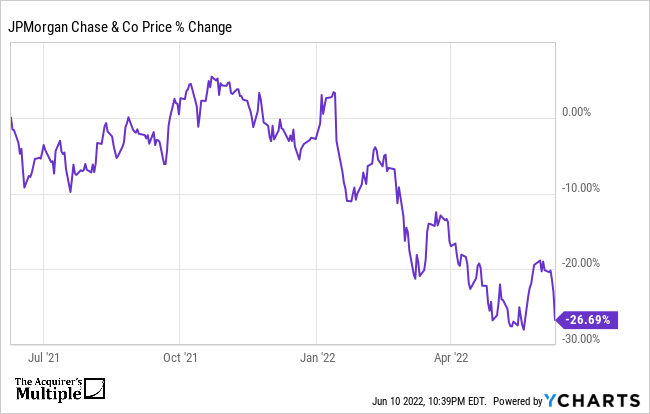
Nathan Strik, co-manager of reit fidelity funds, helped raise Rs 1,125 crore. Funds are expected to redeem redemption proceeds in cash. Usually, the funds will pay redemption proceeds in cash. They can borrow from another fund or financial institution using reverse repurchase arrangements in certain situations. These transactions could occur under normal market conditions. But, these transactions could have unintended results such as limiting cash available for the Funds to borrow.
reit fidelity raises Rs 1,125 crore
Mindspace Business Parks REIT, a real-estate investment trust, is supported by Blackstone and K Raheja Corp. The company plans to raise Rs 4,500 Crore through a public offering and new issuances of shares. The company already has Rs 1.125 crore of commitments at Rs. 275 per share and plans to sell the remainder of the shares to strategic buyers. It is expected that the public issue will begin on July 27,

Nathan Strik co-manages
Nathan Strik, who manages other funds since August 2018, is the fund's comanager. He joined Fidelity Investments 2002 and has been involved in portfolio management as well as research. His compensation, other accounts he manages, and fund shares are disclosed in the fund's statement of additional information. The statement also includes information about the fund's investment goals, risk factors and performance measures.
Funds redeem redemption proceeds in cash
Mutual funds will often pay redemption proceeds for securities in cash. Some funds offer a bankwire redemption option. Before requesting a wire redemption, investors will need to provide information about the bank account they have 30 days prior. It takes approximately two working days. All requests are processed within two days. The funds are then sent to your account on day 2. Dividends, capital gains, and other dividends are paid every so often. You have the option of receiving them by check or wire. You can also get automatic deposits into your local bank account.
Funds may borrow money from other funds
For real estate investments, fidelity funds for Reit may borrow from other fund firms. This means the investment isn't as liquid as the underlying securities. These funds are not listed on any public exchanges and may require a lengthy settlement period. These funds are ideal for investors with a long-term horizon, as they have the lowest risk. Investors should also be aware of the risks associated with borrowing from other funds.

Funds can use reverse-repurchase agreements
Reverse-repurchase agreements are a type or financial contract where one party agrees that it will purchase a security in the future at a particular price. The fair market value of the cash used in security investment at the time of the agreement must equal or exceed the collateral's value. These agreements can be unilateral or centrally cleared. Reverse repurchase agreements may be used by funds to reduce their credit risk.
FAQ
Why is a stock security?
Security is an investment instrument whose worth depends on another company. It can be issued by a corporation (e.g. shares), government (e.g. bonds), or another entity (e.g. preferred stocks). The issuer promises to pay dividends to shareholders, repay debt obligations to creditors, or return capital to investors if the underlying asset declines in value.
What is the purpose of the Securities and Exchange Commission
SEC regulates brokerage-dealers, securities exchanges, investment firms, and any other entities involved with the distribution of securities. It enforces federal securities regulations.
Who can trade on the stock market?
Everyone. But not all people are equal in this world. Some have greater skills and knowledge than others. They should be rewarded for what they do.
However, there are other factors that can determine whether or not a person succeeds in trading stocks. If you don’t have the ability to read financial reports, it will be difficult to make decisions.
This is why you should learn how to read reports. You must understand what each number represents. Also, you need to understand the meaning of each number.
You will be able spot trends and patterns within the data. This will help you decide when to buy and sell shares.
You might even make some money if you are fortunate enough.
How does the stockmarket work?
When you buy a share of stock, you are buying ownership rights to part of the company. The company has some rights that a shareholder can exercise. He/she has the right to vote on major resolutions and policies. He/she may demand damages compensation from the company. The employee can also sue the company if the contract is not respected.
A company cannot issue more shares that its total assets minus liabilities. This is called capital sufficiency.
A company with a high ratio of capital adequacy is considered safe. Low ratios can be risky investments.
How does inflation affect the stock market?
Inflation affects the stock markets because investors must pay more each year to buy goods and services. As prices rise, stocks fall. That's why you should always buy shares when they're cheap.
How do you choose the right investment company for me?
It is important to find one that charges low fees, provides high-quality administration, and offers a diverse portfolio. The type of security in your account will determine the fees. Some companies have no charges for holding cash. Others charge a flat fee each year, regardless how much you deposit. Others charge a percentage based on your total assets.
It is also important to find out their performance history. Companies with poor performance records might not be right for you. Companies with low net asset values (NAVs) or extremely volatile NAVs should be avoided.
You should also check their investment philosophy. Investment companies should be prepared to take on more risk in order to earn higher returns. If they're unwilling to take these risks, they might not be capable of meeting your expectations.
How do I invest on the stock market
Through brokers, you can purchase or sell securities. A broker sells or buys securities for clients. You pay brokerage commissions when you trade securities.
Banks typically charge higher fees for brokers. Banks will often offer higher rates, as they don’t make money selling securities.
A bank account or broker is required to open an account if you are interested in investing in stocks.
If you hire a broker, they will inform you about the costs of buying or selling securities. This fee will be calculated based on the transaction size.
Ask your broker questions about:
-
Minimum amount required to open a trading account
-
Are there any additional charges for closing your position before expiration?
-
what happens if you lose more than $5,000 in one day
-
how many days can you hold positions without paying taxes
-
What you can borrow from your portfolio
-
Transfer funds between accounts
-
How long it takes transactions to settle
-
The best way for you to buy or trade securities
-
How to Avoid fraud
-
How to get help if needed
-
Can you stop trading at any point?
-
If you must report trades directly to the government
-
Whether you are required to file reports with SEC
-
Do you have to keep records about your transactions?
-
whether you are required to register with the SEC
-
What is registration?
-
How does it affect me?
-
Who is required to be registered
-
When should I register?
How Share Prices Are Set?
Investors decide the share price. They are looking to return their investment. They want to make money with the company. So they purchase shares at a set price. If the share price increases, the investor makes more money. If the share value falls, the investor loses his money.
The main aim of an investor is to make as much money as possible. This is why investors invest in businesses. It allows them to make a lot.
Statistics
- US resident who opens a new IBKR Pro individual or joint account receives a 0.25% rate reduction on margin loans. (nerdwallet.com)
- Even if you find talent for trading stocks, allocating more than 10% of your portfolio to an individual stock can expose your savings to too much volatility. (nerdwallet.com)
- "If all of your money's in one stock, you could potentially lose 50% of it overnight," Moore says. (nerdwallet.com)
- Individuals with very limited financial experience are either terrified by horror stories of average investors losing 50% of their portfolio value or are beguiled by "hot tips" that bear the promise of huge rewards but seldom pay off. (investopedia.com)
External Links
How To
How to Invest Online in Stock Market
The stock market is one way you can make money investing in stocks. There are many ways to do this, such as investing through mutual funds, exchange-traded funds (ETFs), hedge funds, etc. The best investment strategy depends on your risk tolerance, financial goals, personal investment style, and overall knowledge of the markets.
To become successful in the stock market, you must first understand how the market works. This includes understanding the different investment options, their risks and the potential benefits. Once you know what you want out of your investment portfolio, then you can start looking at which type of investment would work best for you.
There are three main types: fixed income, equity, or alternatives. Equity refers to ownership shares in companies. Fixed income can be defined as debt instruments such bonds and Treasury bills. Alternatives include commodities, currencies and real estate. Venture capital is also available. Each category has its own pros and cons, so it's up to you to decide which one is right for you.
Two broad strategies are available once you've decided on the type of investment that you want. One strategy is called "buy-and-hold." You purchase a portion of the security and don't let go until you die or retire. The second strategy is called "diversification." Diversification involves buying several securities from different classes. If you buy 10% each of Apple, Microsoft and General Motors, then you can diversify into three different industries. The best way to get exposure to all sectors of an economy is by purchasing multiple investments. You can protect yourself against losses in one sector by still owning something in the other sector.
Risk management is another crucial factor in selecting an investment. Risk management is a way to manage the volatility in your portfolio. A low-risk fund could be a good option if you are willing to accept a 1% chance. You could, however, choose a higher risk fund if you are willing to take on a 5% chance.
Learning how to manage your money is the final step towards becoming a successful investor. Planning for the future is key to managing your money. A good plan should cover your short-term goals, medium-term goals, long-term goals, and retirement planning. Sticking to your plan is key! Don't get distracted by day-to-day fluctuations in the market. Keep to your plan and you will see your wealth grow.